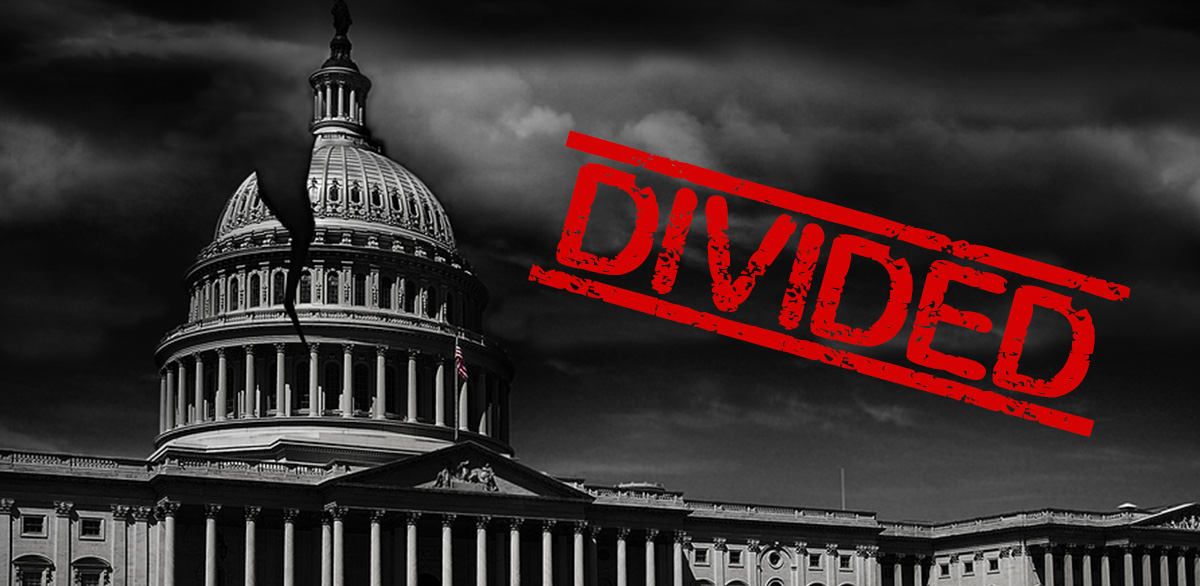
Democrats wrested control of the House away from Republicans in November’s midterm elections, and the predictions of how a divided Congress could impact the already fragile financial markets and economy aren’t pretty.[1]
At the very least, legislative gridlock could prevent further tax cuts and stimulus, casting uncertainty over whether Trump will be able to continue to advance the pro-business agenda that has propelled the record-long expansion.[2] But the Democratic majority is capable of much more extreme measures: government shutdowns, investigations into the Trump administration’s activities, and even impeachment.[3]
Up until now, numerous threats have lurked on the periphery: Russia, North Korea, and China. But none rival an uncertain fate for our nation’s leader.
Could political turmoil at the top rock the rest of the nation?
A Split Congress Predicted to Bring Political Discord and Conflicts
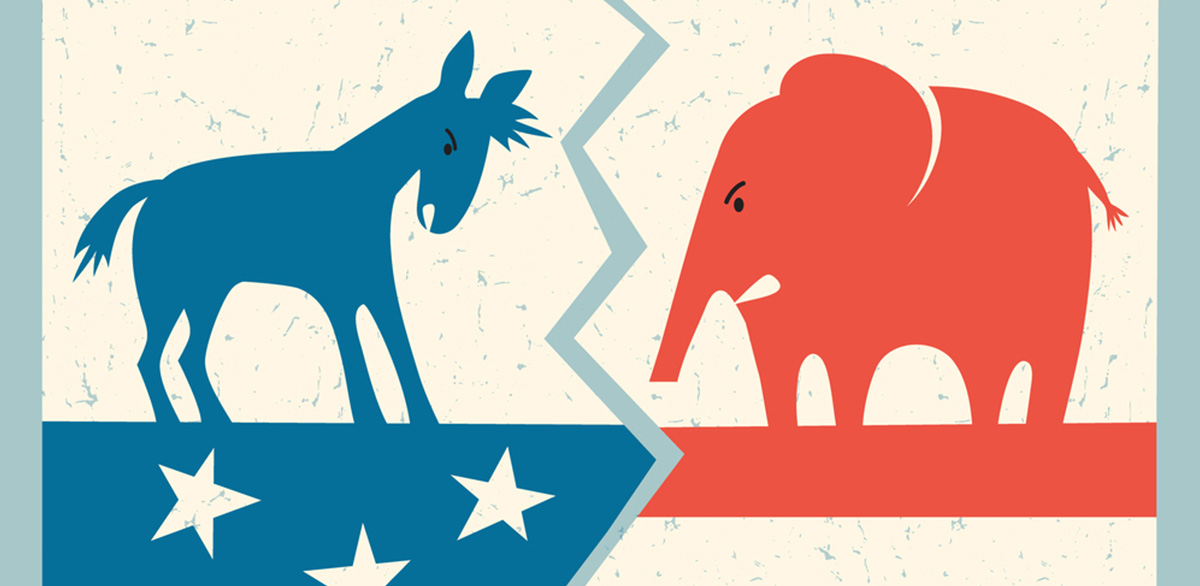
From legislative stalemates to party confrontations, the road ahead is expected to be rocky under a divided Congress.
Policy Deadlock
What’s almost certain is that less will get done with opposing parties in Congress.
- The flow of fiscal stimulus will likely be shut off.[4]
- A second round of tax cuts halted.
- Deregulatory rollbacks stalled.
- Funding for a border wall with Mexico? Out of the question.[5]
Even though historically midterm elections didn’t have much of an impact on markets in the past, this time around things could be different ‘given how much of the equity and rate move was driven by the Trump tax cuts in late-2017,–Strategists at TD Securities[6]
Will the record-long bull market run and economic expansion continue on without additional monetary fuel from the federal government?
Mueller Investigation
What’s been called “the most high-stakes legal, political showdown involving different branches of government since Watergate” is underway, and already, President Trump has rankled members of both parties by ousting Attorney General Jeff Sessions the day after the midterm elections.[7]
It is impossible to read Attorney General Sessions’ firing as anything other than another blatant attempt by @realDonaldTrump to undermine & end Special Counsel Mueller’s investigation.
— Nancy Pelosi (@NancyPelosi) November 7, 2018
It is imperative that the Administration not impede the Mueller investigation. I’m concerned Rod Rosenstein will no longer be overseeing the probe. Special Counsel Mueller must be allowed to complete his work without interference-regardless of who is AG.
— Sen. Susan Collins (@SenatorCollins) November 7, 2018
President Trump replaced Sessions with Matthew Whitaker, who CNN recently reported publicly denied the possibility that Russia interfered with the 2016 election. Regardless of Whitaker’s views or loyalty to the President, he’ll be under close scrutiny for any interference in the investigation—the stakes for which are high: conspiracy.[8]
Amid this backdrop of billowing potential scandal, the big question of everyone’s mind is, “Will President Trump be indicted?” Trump’s circle of allies and confidants is growing ever smaller. Special counsel Robert Mueller and his team have already indicted or gotten guilty pleas from three companies and 32 people.[9] Roger Stone, one of the President’s most loyal supporters, has been telling his fans “I’m next” and asking for donations to help with his legal bills.[10][11] Donald Trump Jr. ‘has told friends in recent weeks that he believes he could be indicted.’[12] Could the President be next?
While many legal scholars doubt a case of the U.S. versus the President is possible, two attorneys representing associates of Donald Trump in the Mueller investigation recently told Politico they think an indictment for obstruction of justice is possible.
Could the President be indicated and charged in the Mueller investigation? If he is, what will become of his administration?
Impeachment
‘What Mueller might not think is indictable could be impeachable,–Nancy Pelosi explained in an interview with The Atlantic on November 11
Even if President Trump isn’t indicted during the Mueller investigation, he still faces the threat of impeachment. Describing the situation as ‘perilously close to a constitutional crisis,’ Pelosi said the evidence for impeachment on the basis on collusion is there: indisputable intelligence assessments proving Russian interference in the 2016 election and interference in the Mueller probe due to the firing of Sessions and replacement with Whitaker.[13]
What do voters want? Forty percent of polled midterm voters support Trump’s impeachment. Among Democrats, the numbers are much higher: 77 percent. But just 5 percent of Republicans are on board with such a move. A telling sign considering that the Republican-led Senate holds the power to remove the president.
How a Divided Congress Could Derail the Economy and Financial Markets
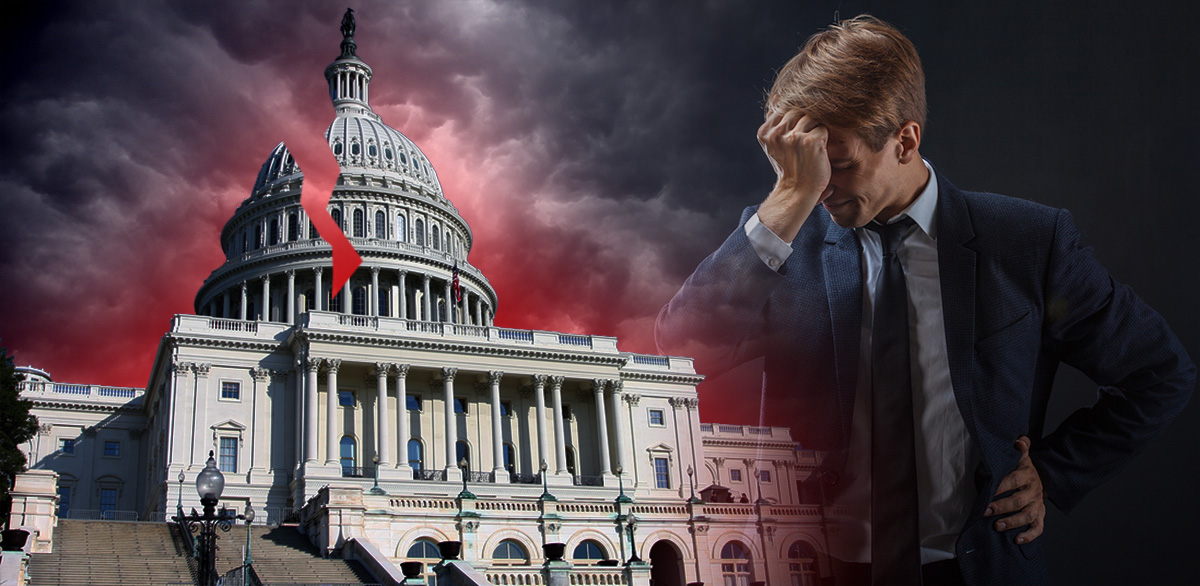
President Trump’s tax cuts and financial deregulation since in office have driven the economy, the equities markets, and the dollar higher, all of which have resulted in continued monetary tightening by the Federal Reserve. However, the Democrat-controlled House of Representatives is unlikely to greenlight another round of such measures. Could this policy shift result in a reversal of these trends?
Fast-Track to Recession
‘The global expansion has passed its peak for this cycle,’ wrote Moody’s Analytics three days after the elections. While the firm indicated that “a recession isn’t imminent,” it predicted ‘heightened downside risks threaten to deliver a faster-than-forecast downturn in global activity.’[14]
Even before the midterm elections, experts predicted the next recession will hit in a year or two. Learn more in “When Will the Economy Crash?”
Among the “downside risks” that could accelerate the downturn are the now contentious atmosphere in the White House, mandated limits on federal spending, and clashes over the borrowing authority of the government. On top of this, the President has threatened his willingness to cooperate on economic legislation should the House Democrats investigate his connection to Russia.
Ultimately, though, ‘Trump is the wild card here,’ remarked Jason Rosenstock, a financial industry lobbyist with Thorn Run Partners. With the 2020 election not far off, he may just play ball.
Increasingly Volatile and Vulnerable Stock Market
Equities surged immediately after the midterm elections, but many analysts predict the rally won’t last.[15]
The political uncertainty likely to accompany a split Congress could send investors into risk-off mode as they start to ‘question how much longer U.S. assets can outperform the rest of the world,’ wrote TD Securities strategists in a report.[16]
‘In terms of financials, they might need a bit more deregulation and that is harder to promote under a split Congress,’ said the chief market strategist at B. Riley FBR, Art Hogan.
Investigations into Trump could cause more stock market volatility.
‘The best case scenario from here, in our view, might be gridlock: do nothing, and undo nothing,’ explained analysts and economists in a report for Bank of America Merril Lynch.[17]
But doing something—tax cuts and stimulus—is how the bull run and economic expansion has continued for so long.
It’s also how a repeat of the Great Depression was avoided in 2008: the Fed stepped in with quantitative easing and a host of other tools to avert a worse crisis than the nation was already beset with.
Historically, a Republican president with a divided Congress has not only resulted in paltry S&P returns but also poor crisis response.
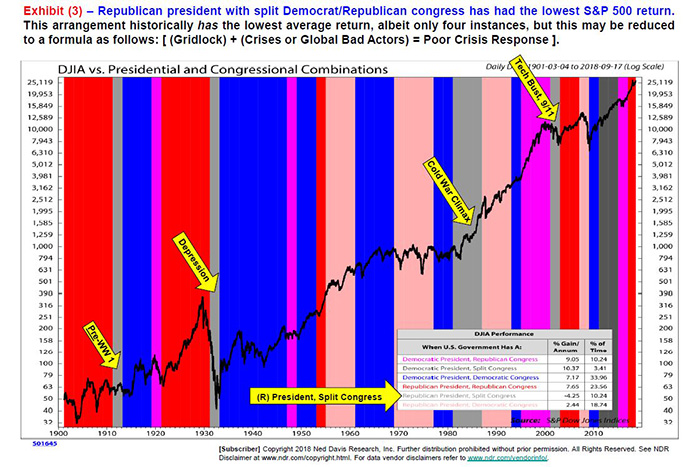
With another financial crash worse than the last predicted to occur soon, will the federal government be able to overcome internal divisions to respond quickly and effectively?
Fewer Fed Interest Rate Hikes
The Federal Reserve’s interest rate hike in September sent jitters through the equities markets in early October, resulting in weeks of volatility. In its meeting on November 7 and 8, the Fed said it planned to stay the course with rate hikes.[18] Four days later, on November 12, the market fell: the Dow dropped 1.5 percent, the S&P shed 1.27 percent, and the Nasdaq lost 2.03 percent.
Can we expect the pattern of volatility to stay as the Fed increases rates once more in 2018 and three times in 2019?[19]
However, with the split Congress expected to put a stop to any additional fiscal stimulus, the Fed could feel less pressure to aggressively tighten monetary policy. This would certainly be the case if the economy were to slow down as a result of the loss of another round of tax cuts and infrastructure spending.[20]
Declining Dollar
Fewer Fed interest rate hikes would likely put downward pressure on the dollar and U.S. Treasury yields.
For the dollar, there are fewer fiscal initiatives like tax reform to drive sentiment higher. Any sort of fiscal stimulus is less likely to be observed over the next two years,–Strategists at TD Securitiesexplained the senior foreign exchange strategist at TD Securities, Mazen Issa.
Then there are the efforts by the President to drive down the dollar. Find out what they are in “Is President Trump Telling You to Buy Gold Now?”
Will the dollar decline under the split Congress or President Trump’s own agenda?
Runaway National Debt
Of course, there are other risks for the reserve currency: the “dual threat of high inflation and high debt.” The federal deficit is approaching $1 trillion and the national debt surpassed $21 trillion.[21]
All the while, the Fed plans to continue raising interest rates, increasing the cost of servicing these astronomical levels of debt. Over the next decade, interest on U.S. debt is expected to reach $7 trillion. And guess what the third largest category of the federal budget will be by 2026? Interest.
When so much is spent on just the interest on debt, less is left for infrastructure spending, investment, a rainy day—or the next Great Recession.
If the opposing parties in Congress manage to work together when the next crisis hits, will they even have the resources to prevent a deep, prolonged downturn?
Escalating Trade Disputes
A further ratcheting up of measures against China in January is still a risk. Such an outcome would also add to upward pressure on U.S. inflation, while adding deflationary pressure to global goods prices,–wrote strategists at MRB Partners in a note[22]
Perhaps the one area that may not be impacted by the split Congress but that is just as alarming as any of the consequences of it is the trade war with China. President Trump does not need congressional approval to impose tariffs on China.[23]
At present, the 10 percent tariffs on half of all Chinese imports into the U.S. is set to jump to 25 percent on January 1. Tariffs on the other 50 percent of imports, including thousands of consumer goods, is still possible.[24]
Will the U.S. economy start to feel the full effect of the trade war with China in 2019?
Prepare for Future Uncertainty: Follow Smart Money and Central Banks into Gold
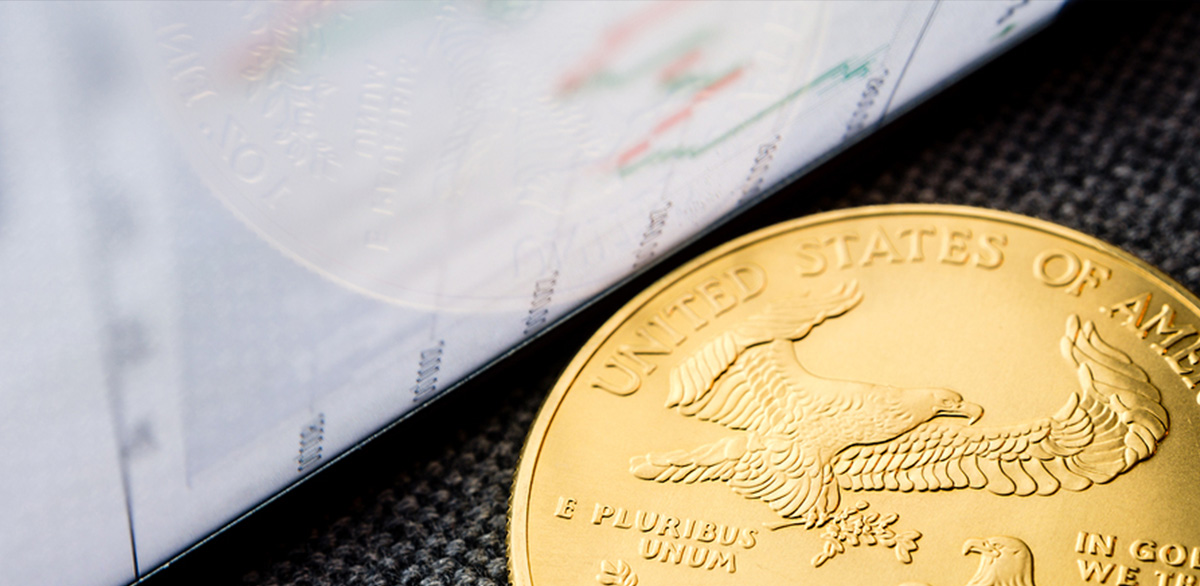
If this survey of the political, financial, and economic landscape has left you uncertain about the future, you’re not alone.
One way to gage the stability of the government and markets is to watch where major Wall Street players and big banks are putting their money.
Lately, smart money has been buying up physical precious metals. Sales jumped 126 percent in August! Over the third quarter, investment in gold coins and bars leaped 20 percent compared to the same period in 2017—and the U.S. accounted for 74 percent of the demand.
Central banks around the world stocked up on gold from July to September as well. Year-over-year gold buying increased 22 percent, the highest level in three years. Get the full story in “World Gold Council Reports Jump in Q3 Gold Demand.”
Why are central banks and smart money investors stocking up? What do they know?
It’s time to protect your portfolio with gold before political clashes, financial crashes, or economic downturn become realities and gold prices—already rising—skyrocket.

